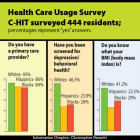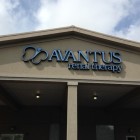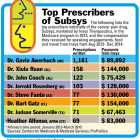Fines & Sanctions
Derby Nurse Pressured By Drug Company To Boost Sales
|
A Derby nurse who admitted taking kickbacks from a drug company that makes the powerful painkiller Subsys was pressured by sales representatives to increase her prescribing “so that the Subsys numbers would also increase,” according to court documents. In a hearing transcript recently made public, federal prosecutors charged that Heather Alfonso “continued to increase her prescribing of Subsys and to find more patients for whom she could prescribe the drugs” in exchange for a series of $1,000 kickbacks, totaling $83,000, from the company, Insys Therapeutics. Although the potent narcotic is approved only for cancer patients, some of the patients given Subsys by Alfonso “did not have a cancer diagnosis,” which would have meant that Medicare and private insurers would have refused to pay claims, federal prosecutors said. But “prior authorizations” submitted on behalf of patients falsely represented that they had cancer, misleading insurers into paying for the drug. It is not clear in the testimony who was involved in submitting the false authorizations to Medicare and insurers.



